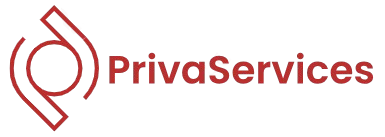Unlocking Your Potential: A Deep Dive Into Productivity Tools
Productivity tools have become integral to our daily lives, helping us manage tasks, streamline processes, and achieve our goals efficiently. In a fast-paced world where time is of the essence, these tools serve as valuable assets, enabling individuals and organizations to maximize their potential and drive success. But what exactly are productivity tools, and how do they impact our productivity levels? Let’s embark on a journey to explore the world of productivity tools, uncovering their significance, applications, and benefits.
The Evolution of Productivity Tools
Productivity tools have a rich history that dates back to the early days of computing. The emergence of personal computers in the 1980s paved the way for the development of software applications designed to enhance efficiency and organization. From basic word processors to sophisticated project management software, productivity tools have evolved significantly over the years, catering to a diverse range of needs and preferences.
In today’s digital age, productivity tools encompass a wide array of applications, platforms, and devices that empower users to work smarter, not harder. Whether you’re a busy professional juggling multiple projects or a student striving to stay on top of assignments, there’s a productivity tool tailored to meet your specific requirements.
Types of Productivity Tools
Productivity tools can be classified into several categories based on their functionality and purpose. From task management and time tracking to note-taking and communication, these tools offer a comprehensive suite of features to boost productivity and efficiency. Let’s delve into some of the most popular types of productivity tools:
1. Task Management Tools
Task management tools are designed to help individuals and teams organize, prioritize, and track tasks effectively. These tools typically include features such as task lists, deadlines, reminders, and collaboration capabilities. Popular task management tools include Trello, Asana, and Todoist, which offer intuitive interfaces and seamless integrations with other applications.

By olia danilevich via Pexels
2. Time Tracking Tools
Time tracking tools enable users to monitor and analyze how they spend their time, allowing them to identify inefficiencies, optimize workflows, and improve productivity. These tools can track time spent on various tasks, projects, and activities, providing valuable insights into time management habits. Examples of time tracking tools include Toggl, RescueTime, and Harvest, which offer detailed reports and analytics to help users make informed decisions.

By fauxels via Pexels
3. Note-Taking Tools
Note-taking tools are essential for capturing ideas, insights, and information on the go. These tools offer features such as text formatting, multimedia support, and cloud synchronization, making it easy to access and share notes across devices. Popular note-taking tools include Evernote, OneNote, and Google Keep, which provide seamless integration with productivity workflows.

By Ketut Subiyanto via Pexels
4. Communication Tools
Communication tools play a vital role in facilitating collaboration and teamwork among individuals and groups. These tools include email clients, messaging apps, video conferencing platforms, and project management software with built-in communication features. Examples of communication tools include Slack, Microsoft Teams, Zoom, and Basecamp, which streamline communication and enhance productivity in virtual work environments.

By Lum3n via Pexels
The Benefits of Productivity Tools
Productivity tools offer a myriad of benefits that can transform the way we work, learn, and interact. By harnessing the power of technology and automation, these tools empower us to be more organized, focused, and efficient in our daily tasks. Some key benefits of using productivity tools include:
1. Enhanced Efficiency
Productivity tools help streamline workflows, automate repetitive tasks, and eliminate time-consuming manual processes. By leveraging the capabilities of these tools, users can accomplish more in less time, resulting in increased productivity and efficiency.
2. Improved Collaboration
Collaboration tools facilitate seamless communication, file sharing, and project management among team members, regardless of their location. With real-time collaboration features, users can work together on tasks, share feedback, and track progress in a collaborative workspace.
3. Better Organization
Organization tools enable users to categorize, prioritize, and categorize information in a structured manner. By centralizing data, documents, and resources in one place, users can easily access, retrieve, and manage information, leading to improved organization and productivity.
4. Time Management
Time management tools help users track, allocate, and optimize their time effectively. By setting goals, deadlines, and reminders, users can stay focused, avoid distractions, and make the most of their time, resulting in better time management and productivity.
Expert Opinions on Productivity Tools
According to productivity expert and author David Allen, “Productivity tools are essential for managing tasks, projects, and priorities in today’s fast-paced world. By using the right tools and techniques, individuals can achieve greater clarity, control, and focus in their work and personal lives.”
Similarly, productivity coach and speaker Tim Ferriss emphasizes the importance of leveraging technology to enhance productivity. He states, “Technology has the power to amplify our strengths, mitigate our weaknesses, and accelerate our progress towards our goals. By harnessing the right productivity tools, we can achieve remarkable results and unlock our full potential.”
Common Misconceptions About Productivity Tools
Despite their numerous benefits, productivity tools are often subject to misconceptions and myths that may deter users from fully embracing their potential. Some common misconceptions about productivity tools include:
1. Productivity Tools Are Complicated
One common misconception about productivity tools is that they are complex and difficult to use. While some tools may have a learning curve, many productivity tools are designed with user-friendly interfaces and intuitive features that make them easy to adopt and integrate into daily workflows.
2. Productivity Tools Are One-Size-Fits-All
Another misconception is that productivity tools are generic and cater to a one-size-fits-all approach. In reality, productivity tools come in various forms, with customizable features, settings, and integrations that allow users to tailor them to their specific needs and preferences.
Comparative Analysis of Productivity Tools
When choosing productivity tools, it’s essential to conduct a comparative analysis to identify the best fit for your requirements. Consider factors such as features, pricing, integrations, customer support, and user reviews to make an informed decision. Some popular productivity tools worth comparing include:
1. Trello vs. Asana
Trello and Asana are two leading project management tools that offer robust features for task organization, collaboration, and project tracking. While Trello is known for its visual boards and simplicity, Asana offers advanced project management capabilities and team collaboration features.
2. Evernote vs. OneNote
Evernote and OneNote are popular note-taking tools that cater to different user preferences. While Evernote provides a comprehensive set of features for organizing notes, documents, and media, OneNote offers seamless integration with the Microsoft Office suite and cloud synchronization.
FAQs About Productivity Tools
Q: Are productivity tools only for professionals?
A: No, productivity tools are beneficial for individuals of all backgrounds and professions. Whether you’re a student, freelancer, entrepreneur, or stay-at-home parent, productivity tools can help you stay organized, focused, and efficient in your daily tasks.
Q: Do productivity tools guarantee success?
A: While productivity tools can enhance efficiency and productivity, success ultimately depends on how effectively you use these tools in conjunction with goal-setting, time management, and self-discipline. Productivity tools are tools to help you achieve your goals, not a guarantee of success.
To Wrap Things Up
Productivity tools are indispensable assets that empower us to work smarter, not harder. By leveraging the capabilities of these tools, we can enhance our efficiency, organization, and time management skills, ultimately unlocking our full potential and driving success in our personal and professional lives. So, why wait? Start exploring productivity tools today and embark on a journey to unleash your productivity prowess!




